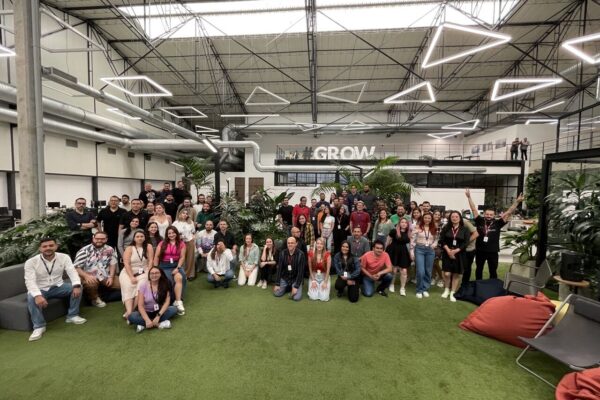Performance Oriented Culture
A performance-oriented culture in a software development company focuses on achieving high productivity, quality, and speed in delivering software. This culture emphasizes continuous improvement, innovation, and excellence throughout the development process.
One way to cultivate this kind of culture is by aiming for a generative culture, as defined by Dr. Ron Westrum. A sociologist who studied safety-critical complex systems in aviation and healthcare. Dr. Westrum describes a generative culture as one that fosters cooperation, information flow, and innovation. according to him, there are three levels of organizational culture:
Westrum’s Three Levels of Culture
Pathological (Power-Oriented) Culture:
Characteristics: Low cooperation, hidden information, shirked responsibilities, discouraged bridging, punished failure, and crushed novelty.
Behavior: Organizations at this level focus on personal power, respond to failure with blame, and maintain an atmosphere of fear and secrecy.
Bureaucratic (Rule-Oriented) Culture:
Characteristics: Modest cooperation, neglected information, compartmentalized responsibilities, allowed but discouraged bridging, justice-focused failure response, and problematic novelty.
Behavior: Bureaucratic cultures prioritize adherence to rules and procedures over outcomes. Information flow is restricted by formal channels, and failures prompt a search for responsible individuals rather than systemic improvement.
Generative (Performance-Oriented) Culture:
Characteristics: High cooperation actively sought information, shared responsibilities, encouraged bridging, inquiry-focused failure response, and implemented novelty.
Behavior: Generative cultures emphasize performance and continuous improvement. Information is openly shared, collaboration is the norm, and failures are analyzed to learn and improve.
Achieving a Generative Culture
To cultivate a generative culture, organizations should focus on:
Encouraging Open Communication
Promote a safe environment where team members feel comfortable sharing ideas and feedback.
Example: Google’s “Project Aristotle” found that psychological safety is the key factor in high-performing teams. Google promotes open communication through various channels, ensuring team members feel safe speaking up.
Empowering Teams
Give teams the authority and resources to make decisions and take ownership of their work.
Example: At Amazon, the “two-pizza team” rule ensures that teams are small and autonomous, with the power to make decisions quickly. This structure promotes ownership and accountability.
Fostering Collaboration
Break down silos and encourage cross-functional teamwork to solve problems and innovate.
Example: Spotify’s “squad” model organizes teams into small, cross-functional units that work on specific features or projects. This promotes collaboration and agility.
Embracing Failure as Learning
View failures as opportunities to learn and improve, rather than assigning blame.
Example: Etsy conducts blameless postmortems to analyze failures and learn from them. This practice helps build a culture of trust and continuous improvement.
Seeking Continuous Improvement
Encourage a mindset of ongoing improvement and adaptation to changing circumstances.
Example: Teams at Atlassian use the playbook to conduct regular retrospectives, improve their workflows, and address any collaboration challenges. By following the playbook, teams can build stronger relationships and work more effectively together, leading to higher performance and job satisfaction.
Conclusion
A performance-oriented culture is essential for achieving high productivity, quality, and speed in software development. Organizations can foster an environment of collaboration, continuous learning, and innovation by implementing strategies to create a generative culture. Encouraging open communication, empowering teams, fostering collaboration, embracing failure as learning, and investing in professional development are key to building a high-performing and resilient organization.
Perficient promotes a high-performance culture through its Growth for Everyone program, which emphasizes continuous learning, empowerment with essential tools and resources, and leadership development at all levels. By offering structured development pathways like the Consultant Curriculum, Learning to Lead, and Leading with Impact, along with comprehensive toolkits and the Perficient Academy, the company ensures employees have what they need to succeed. This commitment to a people-first, collaborative culture, backed by data-driven decision-making, aligns with the principles of a Performance Oriented Culture showcasing Perficient’s dedication to fostering an environment where every employee can thrive.
How do You Assess your Company or Project?
- High Cooperation.
- Good information Flow.
- Experimentation embraced or encouraged.
- Failures are opportunities to improve.
- Root cause analysis is objective.
- Responsibilities are discussed in terms of overall risk.
- Risks are Shared among teams.
Cultural Capabilities Series
- How to Create a Continuous Learning Culture?
- Effective Team Collaboration: Strategies for High Performance and Success
- How Job Satisfaction Boosts Employee Engagement?
- Unlock the Power of Transformational Leadership
References
- Forsgren, N., Humble, J., & Kim, G. (2018). Accelerate: The Science of Lean Software and DevOps: Building and Scaling High Performing Technology Organizations. IT Revolution Press.
- Westrum, R. (2014). “A Typology of Organizational Cultures.” Quality & Safety in Health Care, 13(Suppl 2), ii22-ii27.
- Barr, A. (2020). Amazon Unbound: Jeff Bezos and the Invention of a Global Empire. Dey Street Books.
- “Atlassian Team Playbook” – Atlassian
- “Project Aristotle.” Google Re:Work.
- “Spotify’s Squad Model.” Spotify Engineering Blog.
- “Etsy’s Blameless Postmortems.” Blameless Blog.
Perficient continually looks for ways to champion and challenge our workforce, encourage personal and professional growth, and celebrate the unique culture created by the ambitious, brilliant, people-oriented team we have cultivated. These are their stories.
Learn more about what it’s like to work at Perficient on our Careers page. Connect with us on LinkedIn here.

